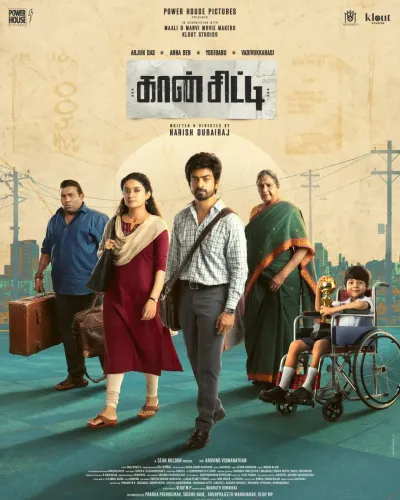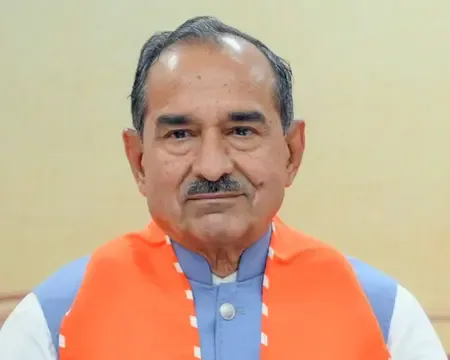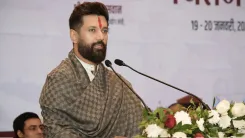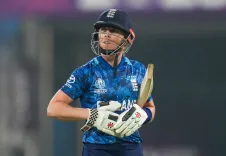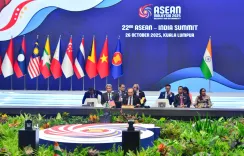Did the Supreme Court Just Overturn Santhosh Karunakaran's Ban?
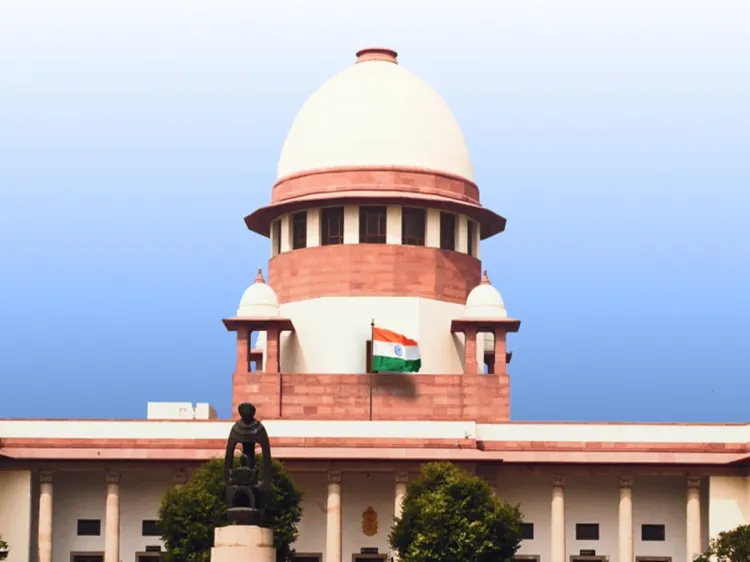
Synopsis
Key Takeaways
- Supreme Court quashes Karunakaran's lifetime ban.
- Transparency in cricket governance is essential.
- KCA's actions were deemed non-transparent.
- Karunakaran's case highlights systemic issues.
- Ombudsman must hear the case afresh.
New Delhi, July 30 (NationPress) The Supreme Court has overturned the lifetime ban placed on former Kerala Ranji Trophy cricketer Santhosh Karunakaran by the Kerala Cricket Association (KCA).
A Bench comprised of Justices Vikram Nath and Sandeep Mehta granted the special leave petition (SLP) submitted by Karunakaran, contesting the 2021 decisions of the Kerala High Court, which had rejected his writ petition and subsequent appeal.
Initially, the cricketer sought the Ombudsman-cum-Ethics Officer’s intervention in 2019, advocating for the enforcement of model byelaws across all District Cricket Associations (DCAs) in Kerala, as recommended by the Justice R.M. Lodha Committee and adopted by the Board of Control for Cricket in India (BCCI).
However, the Ombudsman dismissed Karunakaran’s request on October 3, 2020, citing his failure to include the DCAs as parties in the case despite repeated instructions. Subsequently, he challenged this decision in the Kerala High Court, claiming that the Ombudsman’s process was fundamentally non-transparent and that he had not been informed about the specific directives.
Both the single judge and the division bench of the Kerala High Court turned down Karunakaran’s petitions, asserting that he had approached the court with “unclean hands” and allegedly concealed important facts.
After the High Court dismissed Karunakaran’s appeals, the KCA issued a show-cause notice under its bye-laws.
In August 2021, the KCA enforced a lifetime ban, effectively blacklisting Karunakaran from all its activities and revoking his rights and privileges as a registered member of the Thiruvananthapuram DCA.
In its ruling, the Supreme Court concurred with Karunakaran’s argument that the Ombudsman’s proceedings were lacking in transparency and that he was denied access to pertinent records.
Karunakaran had previously requested a copy of all records concerning the proceedings related to his initial application, but his request was denied on the basis that the Ombudsman is a “persona designata” and does not function as a court of record.
Furthermore, the apex court acknowledged that both Karunakaran and his legal counsel encountered continual challenges while interacting with the Ombudsman, as virtual hearings were “frequently interrupted without justification.”
The Supreme Court described the Kerala High Court’s dismissal of Karunakaran’s petitions as “harsh,” emphasizing that he was not obligated to include the DCAs in his original application before the Ombudsman.
“Moreover, the sole request of the appellant in the original application was to establish uniform bye-laws in alignment with the recommendations of the Justice R.M. Lodha Committee. Thus, the appellant's application did not constitute adversarial litigation necessitating the mandatory opportunity of hearing for the DCAs,” the top court stated.
By nullifying the Ombudsman’s order, along with the Kerala High Court’s judgments dated January 27 and June 21, 2021, the Supreme Court mandated the revival of Karunakaran’s original application advocating for structural reforms in district-level cricket governance and instructed the Ombudsman to re-evaluate the matter.
“The proceedings of the Original Application No. 10 of 2019 filed by the appellant before the Ombudsman shall stand revived. The involved parties shall be granted an opportunity of hearing, and the original application shall be resolved anew by the Ombudsman with a reasoned order within three months,” ordered the Justice Nath-led Bench.


